

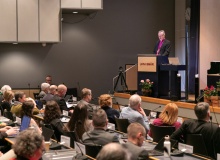
The legal committee's proposal did not receive the required three-quarters qualified majority.
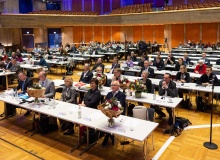
The mainline Lutheran Church in the southern region says the church has been “guilty” of “intrusion into private life with coercive consequences for life courses”. LGBTQI couples will now have full wedding ceremonies.
Christians protested against an anti-discrimination law that would restrict the freedoms of churches and individuals to live out their faith.
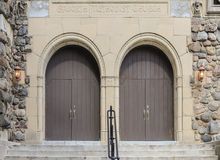
Decisions such as ending the ban on performing same-sex marriages, or the ordination of LGTBQI+ people, could lead more people to abandon the Methodist churches, which suffered a schism in 2019.
.jpg)
Half of the priests think that the Church should marry same-sex couples. Some have already officiated gay marriage ceremonies against the official stance.
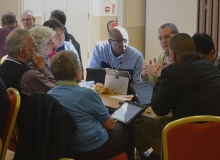
The Baptist Union voted not to change its policy on marriage and ministry. They also confirm that homosexual orientation is no bar to accreditation.
.jpg)
The Greek Evangelical Alliance defends the right of children to have a father and a mother. They perceive ideological pressure from Western European countries.
Cropped(1).jpg)
With a "declaration" of high hierarchical value, Roman Catholicism is now officially in favor of blessing gay unions, as are many liberal Protestant churches around the world.
.jpg)
The new official document “broadens its classical understanding” to “include” new kinds of couples while maintaining “the perennial teaching on marriage”.
.jpg)
Archbishop Justin Welby says Anglicans will “seek to move forward together”, but churches in England and in other parts of the world say the moves lead to a “fracture”.
.jpg)
The national board of the Union of Free Evangelical Churches presented “recommendations” for churches stating that it “respects the Bible as God’s Word”.
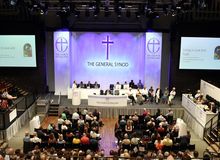
A letter signed by 27 leaders states that the process to bless same-sex couples would be “unlawful, unconstitutional, and illegitimate”.
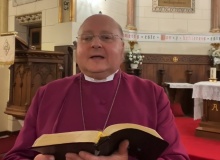
Commenting on the decision of other national churches would be “disrespectful”, says Bishop Carlos Lopez of the IERE.
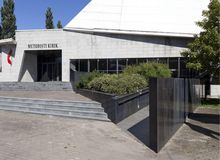
The decision was taken at a special online session with 40 votes in favour, 20 against and 2 abstentions. It won’t be finalized until 2025.
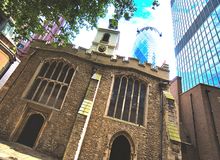
St Helen's Bishopsgate church says “there is no long-term security for Church of England evangelical churches”. St Ebbe's clergy states that they “are in impaired communion with the bishops in our diocese”.
.jpg)
The debate in Scotland around the candidacy of evangelical Kate Forbes shows that orthodox Christian values such as heterosexual marriage are viewed as disqualifying for political leadership.

The decision to bless same sex unions “disqualified the Church of England from leading the Anglican Communion”, says the Global South Fellowship of Anglican Churches.
.jpg)
Theologically conservative groups see the proposals “illogical” and a “Trojan horse” that will lead to future changes in the doctrine of marriage. Politicians accuse the leadership of the Anglican Church of “homophobia”.
.jpg)
It is the first measure of the 6-year-long internal debate on LGBTQI issues. The leading Anglican church says it seeks “a proper 21st century understanding of being human and of being sexual”.
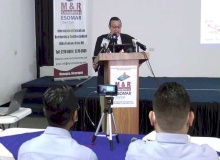
According to a major survey, evangelicals are 37% of the population, Roman Catholics, 33%. 29% said they are unaffiliated believers and 1% identify as non-believers.
Lucio Malan was asked to explain his opposition to same-sex marriage and quoted the Old Testament. He is a member of the Protestant Waldesian Church but disagrees with its liberal approach to sexual morality.
.jpg)
The mainline Reformed Church in the Canton of Vaud was the last to adopt a new marriage rite. The position of the theologically evangelical minority inside the Swiss Reformed Church was defeated again.

In a country with strong LGBTQ movements inside Protestantism, the Federation of Free Evangelical Churches starts to face internal tensions, as seen in the last General Assembly.
.jpg)
Two thirds voted "yes" to the new Family Code promoted by the regime. 20 evangelical denominations asked to vote against.
.jpg)
After a request to change the “ministerial recognition rules”, the denomination opens a hearing process on all levels. “Feelings run deep, and each of us is seeking to be faithful to Christ”.

Las opiniones vertidas por nuestros colaboradores se realizan a nivel personal, pudiendo coincidir o no con la postura de la dirección de Protestante Digital.